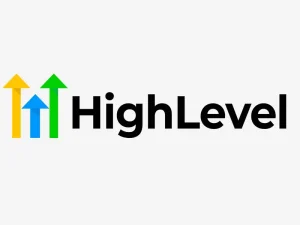Introduction to Digital Marketing
Welcome to the digital realm where businesses thrive, and brands connect! In today’s fast-paced world, having a solid digital marketing plan is no longer just an option – it’s a necessity. Whether you’re a small startup or a well-established corporation, understanding how to navigate the ever-evolving landscape of online marketing is key to staying ahead of the competition. So buckle up as we take you on a journey through the ultimate roadmap to creating an exceptional digital marketing plan that will elevate your brand presence and drive results like never before!
Understanding Your Target Audience
Understanding your target audience is crucial to creating a successful digital marketing plan. Who are they? What are their interests, pain points, and behaviors? Conduct market research to gather valuable insights that will guide your strategy.
Develop buyer personas to represent different segments of your audience. This helps personalize your messaging and tailor your content to resonate with each group effectively.
Utilize analytics tools to track consumer behavior on your website and social media platforms. This data can provide valuable information about what resonates with your audience and what doesn’t.
Listen to feedback from customers through surveys, reviews, and social media interactions. Understanding their preferences can help you refine your approach and better meet their needs.
Remember that understanding your target audience is an ongoing process. Stay agile in adapting to changes in consumer behavior and market trends to continue successfully reaching and engaging with them.
Setting SMART Goals for Your Digital Marketing Plan
Setting SMART goals is crucial for the success of your digital marketing plan. Specific goals ensure clarity and focus on what you want to achieve. Measurable objectives allow you to track progress and evaluate performance accurately.
Achievable targets are realistic within your resources and capabilities, pushing you towards continuous improvement. Relevant goals align with your overall business objectives, driving meaningful results in the digital landscape. Time-bound deadlines create a sense of urgency, prompting action and keeping tasks on schedule.
By implementing SMART goal setting in your digital marketing strategy, you establish a clear, measurable, attainable, relevant, and time-bound roadmap for success. This framework sets the foundation for effective planning and execution to achieve favorable outcomes for your online initiatives.
Choosing the Right Channels and Platforms
When it comes to choosing the right channels and platforms for your digital marketing plan, it’s essential to consider where your target audience spends their time online. Understanding their preferences and behaviors will guide you in selecting the most effective channels to reach them.
Research different platforms, such as social media, search engines, email marketing, and content websites, to determine which ones best align with your goals. Each platform has unique strengths and audiences that can help you tailor your message accordingly.
Don’t be afraid to experiment with different channels to see what works best for your brand. Testing and analyzing the results will provide valuable insights into which platforms drive the most engagement and conversions.
Remember that not all channels are created equal. Focus on quality over quantity when selecting where to invest your time and resources. By strategically choosing the right mix of channels, you can maximize your reach and impact in the digital landscape.
Crafting a Compelling Content Strategy
Crafting a compelling content strategy is crucial in digital marketing. It involves creating valuable and relevant content that resonates with your target audience. Start by understanding your audience’s needs and preferences to tailor your content accordingly.
Use various content types, such as blog posts, videos, infographics, and podcasts, to keep your audience engaged. Consistency is key when it comes to publishing content – establish a regular posting schedule to stay top-of-mind with your followers.
Don’t forget the power of storytelling in your content strategy. Narratives help create an emotional connection with your audience, making them more likely to remember and engage with your brand.
Include calls-to-action in your content to guide users towards taking the desired action, whether it’s signing up for a newsletter or making a purchase. Measure the performance of your content regularly and adjust strategies based on what resonates best with your audience.
Remember, quality over quantity – focus on delivering high-quality, valuable content that adds value to the reader’s experience.
Leveraging Social Media for Maximum Impact
Social media has become an integral part of any successful digital marketing strategy. With billions of active users across various platforms, it presents a goldmine for reaching and engaging with your target audience.
To leverage social media effectively, start by identifying which platforms your audience frequents the most. Whether it’s Facebook, Instagram, Twitter, or LinkedIn, understanding where your audience spends their time is crucial.
Once you’ve chosen the right platforms, focus on creating valuable content that resonates with your followers. This could include informative blog posts, eye-catching visuals, engaging videos, or interactive polls.
Engagement is key on social media. Respond to comments and messages promptly to foster a sense of community and build trust with your audience. Encourage user-generated content through contests or challenges to further boost engagement levels.
Utilize analytics tools provided by each platform to track the performance of your posts and campaigns. Analyzing reach, engagement rates, and conversions can help refine your social media strategy for maximum impact.
Utilizing SEO and PPC Strategies for Better Online Visibility
Utilizing SEO and PPC strategies for digital marketing can significantly boost your online visibility. Search Engine Optimization (SEO) involves optimizing your website to rank higher in search engine results, making it easier for potential customers to find you organically.
Keyword research plays a crucial role in SEO strategy. By identifying relevant keywords that your target audience is searching for, you can tailor your content to attract the right visitors to your site.
Pay-per-click (PPC) advertising allows you to bid on keywords and place ads at the top of search engine results pages. This immediate visibility can drive targeted traffic to your website and increase conversions.
Continuous monitoring and optimization are essential for both SEO and PPC campaigns. Analyzing data such as click-through rates, conversion rates, and keyword performance helps refine strategies for better results.
By combining effective SEO practices with strategic PPC campaigns, you can enhance your online presence and reach a larger audience interested in your products or services.
Measuring and Analyzing Results to Continuously Improve Your Plan
Measuring and analyzing results is crucial in the world of digital marketing. It allows you to track the effectiveness of your strategies and make data-driven decisions moving forward.
Tools like Google Analytics help you monitor website traffic, user behavior, and conversions. By interpreting these metrics, you can identify what’s working well and needs improvement.
A/B testing is another valuable method to optimize your campaigns. By testing different versions of your content or ads, you can determine which performs better with your audience.
Social media insights provide valuable information about engagement levels, reach, and demographics. Use this data to tailor your content to resonate with your followers effectively.
Regularly reviewing key performance indicators (KPIs) ensures that you stay on track towards achieving your goals. Adjusting your tactics based on real-time data is essential for continuous improvement in digital marketing strategies.
Resources and Tools for Digital Marketing Success
When it comes to achieving digital marketing success, having the right resources and tools can make a significant difference. Numerous platforms and software can streamline your efforts and help you reach your goals more effectively.
One essential tool for any digital marketer is Google Analytics, which provides valuable insights into website traffic, user behavior, and conversion rates. This data is crucial for making informed decisions about your marketing strategies.
Another key resource is social media management tools like Hootsuite or Buffer, which allow you to schedule posts, monitor engagement, and analyze performance across multiple platforms in one convenient dashboard.
Email marketing platforms such as Mailchimp or Constant Contact are also invaluable for reaching out to leads and customers with personalized content that drives conversions. These tools offer automation features that save time while delivering targeted messages to the right audience at the right time.
In addition to these fundamental resources, staying updated on industry trends through blogs, webinars, and online courses can further enhance your digital marketing skills and keep you ahead of the curve. By leveraging these resources effectively, you can maximize your digital marketing efforts and achieve greater success in reaching your target audience.
Conclusion
As you create an exceptional digital marketing plan, remember that it is not a one-time task but an ongoing process. Stay flexible, adapt to changes in the digital landscape, and always keep your target audience at the forefront of your strategy. By following the roadmap outlined in this article – from understanding your audience to setting SMART goals, choosing the right channels, crafting compelling content, leveraging social media, utilizing SEO and PPC strategies, measuring results, and utilizing resources and tools – you are well on your way to success. With dedication and continuous improvement based on data-driven insights, your digital marketing plan will help you achieve remarkable online visibility and engagement with your audience. Cheers to a successful digital marketing journey ahead!






